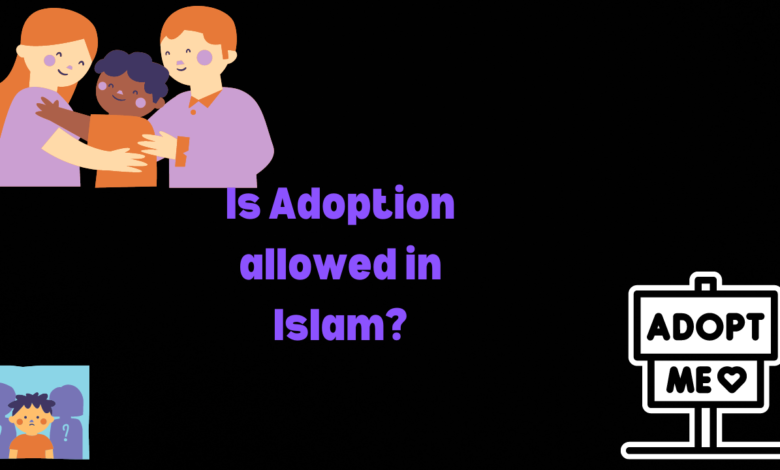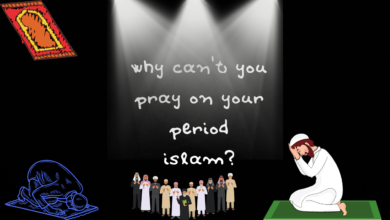Is Adoption allowed in Islam?

Introduction
Adoption, the act of legally and socially taking on the parental responsibilities for a child who is not one’s biological offspring, is a practice that holds different meanings and implications across cultures and religions. In Islam, adoption is a topic that is approached with complexity and nuance, as it involves both religious principles and the well-being of the child. While adoption, as commonly practiced in many societies, is not explicitly encouraged in Islamic tradition, Islam offers its own framework for caring for orphaned or abandoned children.
Islamic Principles and Concern for Orphans
Islam places a great emphasis on the well-being and care of orphans. The Qur’an repeatedly stresses the importance of treating orphans with kindness, compassion, and fairness. In Surah Al-Baqarah (2:83), it is mentioned, “And [recall] when We took the covenant from the Children of Israel, [enjoining upon them], ‘Do not worship except Allah; and to parents do good and to relatives, orphans, and the needy…'” This injunction highlights the significance of caring for orphans as a way to fulfill religious duties.
The Prophet Muhammad (peace be upon him) also emphasized the importance of taking care of orphans. In a famous saying, he stated, “The one who cares for an orphan and myself will be together in Paradise like this,” and he held his two fingers close together to illustrate this unity. This hadith (saying of the Prophet) underscores the divine reward for those who provide care and support to orphaned children.
The Concept of Kafalah
While the concept of adopting a child in the Western sense is not prevalent in Islamic tradition, the concept of “kafalah” is recognized. Kafalah refers to sponsorship or guardianship, where a person takes legal and financial responsibility for a child without severing the child’s ties to their biological family. The child retains their original name, lineage, and inheritance rights.
Kafalah allows for the nurturing of orphaned children within a legal and ethical framework that respects the child’s identity and biological lineage. This approach aligns with the Islamic emphasis on maintaining familial connections and preventing complications that might arise from a child’s true lineage being concealed.
Avoiding Legal and Moral Ambiguities
One of the primary reasons why adoption as commonly practiced in many societies might be discouraged in Islam is the potential for legal and moral ambiguities. Concealing the true lineage of a child could lead to situations where forbidden relationships occur unknowingly, such as marriage between individuals who are unknowingly biologically related.
Moreover, Islam places great importance on maintaining clear family ties and obligations, especially concerning issues of inheritance and rights. Adoption, as understood in some cultures, could disrupt these connections and create legal complications.
Conclusion
The Islamic perspective on adoption is a nuanced one, rooted in principles of compassion for orphaned children and a careful consideration of legal and moral implications. While the Western model of adoption might not align perfectly with Islamic teachings, the concept of kafalah offers a way to provide for orphaned children within the bounds of Islamic ethics. By upholding the child’s identity, lineage, and legal rights, while also fulfilling the religious duty of caring for orphans, Muslims can navigate this complex issue in a manner that respects both their faith and the well-being of vulnerable children.
“Frequently Asked Questions (FAQs) about Adoption in Islam”
Is adoption allowed in Islam?
In Islam, traditional adoption as practiced in some cultures is not allowed, but there are alternatives like “kafalah.” This involves taking care of an orphaned child without changing their lineage or inheritance rights.
What is the rationale behind the prohibition of traditional adoption in Islam?
The prohibition is to ensure the preservation of lineage, inheritance, and legal rights. Islam emphasizes maintaining biological connections while encouraging care for orphans.
Can Muslims raise orphans or parentless children?
Yes, Muslims are encouraged to provide for and care for orphans. It’s considered a noble and virtuous act to support and raise children in need.
What is “kafalah” in Islam?
Kafalah is a form of guardianship where a person takes on the responsibility of caring for and providing for an orphaned child. The child’s biological lineage and inheritance rights are maintained.
Can an adopted child inherit from their adoptive parents in Islam?
No, an adopted child in the traditional sense does not inherit from their adoptive parents in Islam. Inheritance is based on biological relationships.
How should Muslims treat adopted or parentless children?
Muslims are advised to treat adopted or parentless children with love, compassion, and fairness, providing them with a supportive and nurturing environment.






